Please consult the Keylim Mikvah website for current news and status. There are unscheduled closings for maintenance.
Usual hours are Sundays through Fridays from 8:00am until 30 minutes before mincha [plag on summer Fridays]. We kindly request that you respect the congregation and do not attempt to access the mikvah through the shul when the mikvah is closed.
SUPPORT THE KEYLIM MIKVAH
PayPal is secure. Use either your PayPal account or a major credit card.
Click the button to the left and you will be able to enter the amount you desire to donate.
Please note that PayPal takes a small percentage as a fee. Payment and donations by check incur no fees. The PayPal option is provided for your convenience. If your donation is for over $500, we kindly request a check so that Anshe Emes benefits to the maximum extent possible without having to pay fees.
Alternatively, checks can be mailed to:
Anshe Emes — ATTN:Mikvah
1490 S. Robertson Blvd.
Los Angeles, CA 90035
Or please phone the office to make contribution arrangements: 310.275.5640
TAX ID: Federal ID #: 95-1792260-221

Aerial view of directions to Keylim Mikvah, located on the northeast corner of Robertson Boulevard and Cashio. Entrance is EXCLUSIVELY through gate on Robertson Boulevard. If the gate is closed, the mikvah is closed.
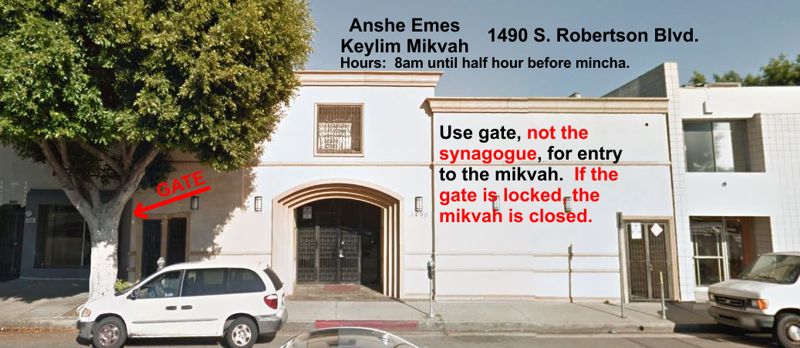
Anshe Emes Synagogue is at 1490 S. Robertson Boulevard, Los Angeles, CA 90035. The entrance to the keylim mikvah is through the gate to the left (north) of the front of the synagogue as indicated by the red arrow pointing to GATE. If the gate is closed, the mikvah is closed. Do NOT bring utensils through the synagogue.
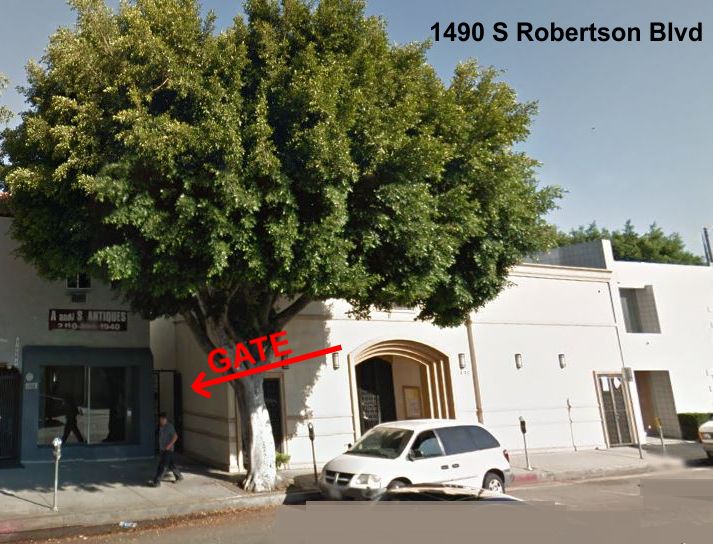
Highlight of gate to the north of Anshe Emes Keylim Mikvah. The mikvah is open from 8am until one half hour before mincha. (One half hour before plag hamincha in the summer time.)
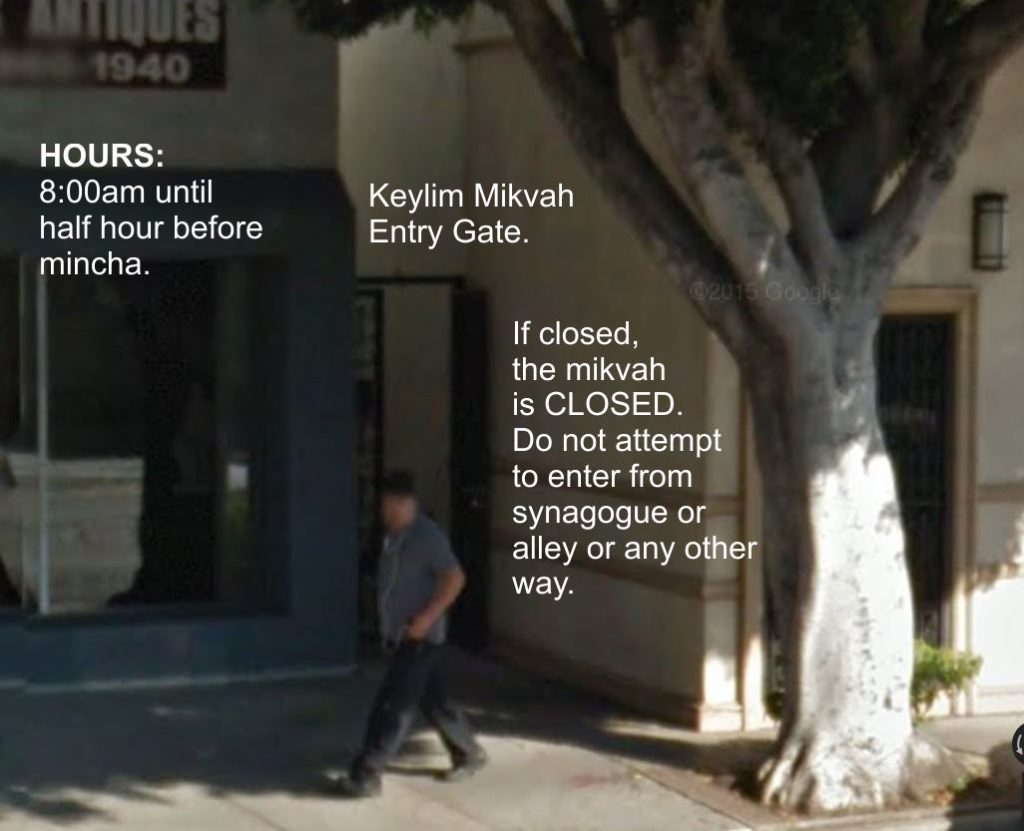
Zoom view of the metal gate that is the ONLY entrance to the keylim mikvah. Please do not use the synagogue or the alley behind the synagogue to try to gain access.
Tevilas Keylim – Immersion of Utensils
- Why do we immerse our new utensils in a Mikvah?
Parshas Mattos, (31:23): “Everything that would not come in the fire, you shall pass through water.” - What needs immersion?
- Any vessel used in food preparation that was acquired from a non-Jew.
- If there is any doubt whether it was acquired from a non-Jew or from a Jew, it should be immersed without a blessing.
- If it was acquired from a Jew and you know it was not immersed, then it also needs immersion with a blessing.
- What kind of utensils need immersion?
Any utensil that comes in contact with the food during its processing or its presentation, whether hot or cold, no matter how large or small in size. - What materials are the utensils made of?
Any type of metal, including aluminum, and glass. These two types of utensils need immersion even if they are covered, i.e., with Teflon. Corningware and Corelle are immersed without a blessing. Glazed china is not immersed, according to Rav Moshe Feinstein. - What items do not need immersion:
- Wood
- Bone
- Earthenware
- Plastic (Melmac, Nylon)
- Rubber
- Disposable Utensils — if used for a short time — like aluminum foil pans
- Immersion must be done in a kosher mikvah, like the Keylim Mikvah at Anshe Emes.
An international directory of Mikvahs is available from ———-, and you can call the Mikvah in your city for more information. - How should immersion be done?
- You only need to immerse the item once, although some people have customs to do more.
- You must immerse the entire vessel at one time.
- Covers and handles need to be immersed.
- The utensil must be clean. Be careful about labels.
- While standing, hold the utensil in your stronger hand.
- Recite the blessing:
– “al tevilas keylim.” (for more than one)
– “al tevilas kli” (for just one) - Immerse the utensil while holding the utensil so that the water can enter the entire surface area, including the area being held
- Don’t talk during immersion
- You may not use a utensil that requires immersion and has not yet been immersed.
- You may not immerse a utensil on Shabbos or Yom Tov.
- For specifics on which items need immersion, and whether they require a blessing or not, please see the list, below:[insert list]
Please note that there is a donation slot in the synagogue door to the left of the keylim mikvah.
It is inappropriate to disrespect the mitzvah of immersing your keylim if you deface the mikvah area with adhesive labels, stickers, price tags, boxes, cardboard, plastic or any other form of litter.
Please remove what you brought and dispose of trash at your home.


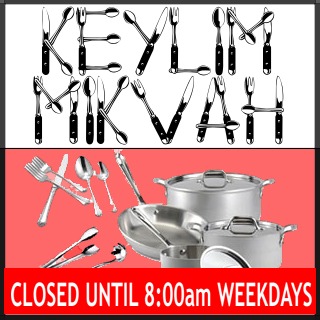
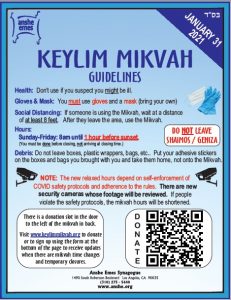
 Visit the group and request to join.
Visit the group and request to join.
